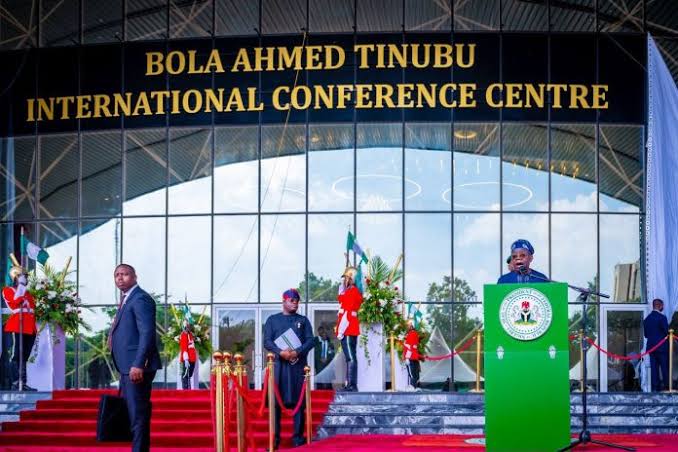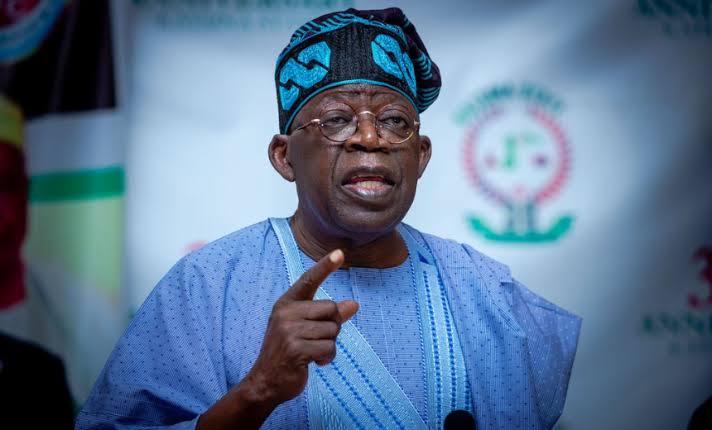The Minister of the Federal Capital Territory (FCT), Nyesom Wike, has defended the ₦39 billion renovation of the International Conference Centre (ICC) in Abuja, dismissing widespread criticism and insisting the upgrade reflects Nigeria’s status as the “Giant of Africa.”
Wike made the remarks on Friday during the commissioning of the newly constructed Left-Hand Service Carriageway in Abuja. Addressing the controversy surrounding the cost of the renovation project, he stated that aside from the original concrete block structure, every other component of the ICC had been comprehensively renovated.
According to the minister, the extensive refurbishment of the facility was necessary to restore the International Conference Centre to a world-class standard.
He emphasized that previous administrations had allowed the facility to deteriorate, and a significant overhaul was needed to bring it up to a level that meets global expectations.
READ ALSO: ‘We need projects’ – Abuja indigenes tell Wike
Wike said the renovations included complete replacements and upgrades of electrical systems, air conditioning units, interior fittings, roofing, plumbing, and other major infrastructure. He noted that maintaining the building’s original block structure was the only aspect that remained unchanged.
He described the criticism of the project’s cost and execution as misplaced and attributed it to what he called a lack of aesthetic appreciation by some of the critics. “What we have done is a total renovation of the Conference Centre,” Wike said. “The only thing left untouched in the Bola Ahmed Tinubu International Conference Centre is the block work.”
The FCT Minister also argued that countries aiming to project a positive international image must invest in infrastructure that reflects their national identity and aspirations. He insisted that Nigeria should not be ashamed of spending money to upgrade public facilities, especially those that host international events and are meant to reflect the country’s image to the world.
In defending the ₦39 billion cost, Wike claimed that the funds were well spent and that due diligence was followed throughout the process. He pointed out that the ICC had become outdated and unsuitable for high-level functions, making the renovation imperative.
The conference centre, which has hosted numerous national and international events since its original commissioning in the 1990s, had fallen into a state of disrepair in recent years. According to Wike, the federal government made a conscious decision to invest in its revitalization in order to restore it as a top-tier venue for diplomatic and government activities.
Wike also took aim at some opposition figures and social commentators who have questioned the transparency and priority of the project. He challenged them to visit the newly renovated facility before drawing conclusions, stating that their criticisms are often made without seeing the scale of work that has been carried out.
He claimed that many of the project’s detractors have “no taste” and lack an understanding of what a modern conference facility should look like. “You need to have a sense of taste to appreciate what has been done,” Wike stated. “This is not just paint and polish—it is a complete transformation.”
Despite the defense, the renovation has continued to draw scrutiny, with many Nigerians raising questions about the cost amid growing concerns over national debt, inflation, and economic hardship. Civil society organizations and public finance watchdogs have also called for greater transparency in large-scale government expenditures such as this.
Wike, however, maintained that the renovation of the International Conference Centre was a matter of national pride, and he expressed confidence that it would serve the country well for decades to come. He said the government remains committed to improving the capital city’s infrastructure and to ensuring Abuja maintains its image as a modern and functional seat of power.
The Minister’s comments come at a time when public sentiment is particularly sensitive to government spending, with ongoing protests and social media campaigns demanding better accountability in public finance. The ₦39 billion ICC renovation has become a focal point in the broader debate over priorities in government investment.





